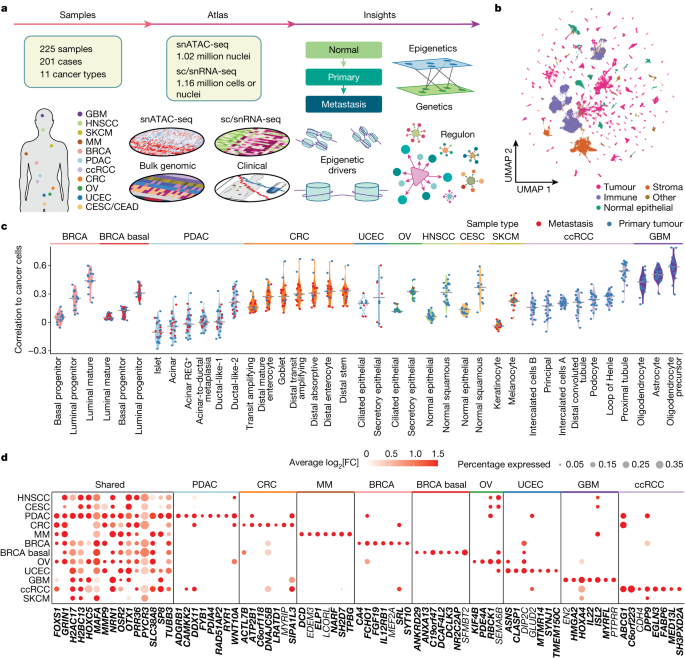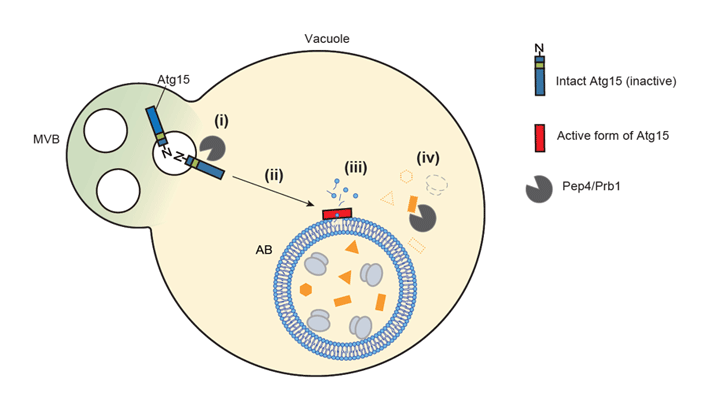2023-11-01 ワシントン大学セントルイス校
◆研究によれば、がん細胞は通常の細胞と比べてゲノムがより「オープン」であり、これががんの進行に関連しているとされています。がんの発症や転移に関連する特定のエピゲノムドライバーも特定され、遺伝子変異と協力してがんの形成や拡散に影響を与えることが示唆されています。この研究はがんの予防と治療に重要な情報を提供し、遺伝子制御メカニズムの新たな探求の機会を提供します。
<関連情報>
- https://source.wustl.edu/2023/11/epigenomes-role-in-cancer-revealed-in-new-study/
- https://www.nature.com/articles/s41586-023-06682-5
11の腫瘍型におけるがん転移時のエピジェネティック制御 Epigenetic regulation during cancer transitions across 11 tumour types
Nadezhda V. Terekhanova,Alla Karpova,Wen-Wei Liang,Alexander Strzalkowski,Siqi Chen,Yize Li,Austin N. Southard-Smith,Michael D. Iglesia,Michael C. Wendl,Reyka G. Jayasinghe,Jingxian Liu,Yizhe Song,Song Cao,Andrew Houston,Xiuting Liu,Matthew A. Wyczalkowski,Rita Jui-Hsien Lu,Wagma Caravan,Andrew Shinkle,Nataly Naser Al Deen,John M. Herndon,Jacqueline Mudd,Cong Ma,Hirak Sarkar,Kazuhito Sato,Omar M. Ibrahim,Chia-Kuei Mo,Sara E. Chasnoff,Eduard Porta-Pardo,Jason M. Held,Russell Pachynski,Julie K. Schwarz,William E. Gillanders,Albert H. Kim,Ravi Vij,John F. DiPersio,Sidharth V. Puram,Milan G. Chheda,Katherine C. Fuh,David G. DeNardo,Ryan C. Fields,Feng Chen,Benjamin J. Raphael & Li Ding
Nature Published:01 November 2023
DOI:https://doi.org/10.1038/s41586-023-06682-5

Abstract
Chromatin accessibility is essential in regulating gene expression and cellular identity, and alterations in accessibility have been implicated in driving cancer initiation, progression and metastasis1,2,3,4. Although the genetic contributions to oncogenic transitions have been investigated, epigenetic drivers remain less understood. Here we constructed a pan-cancer epigenetic and transcriptomic atlas using single-nucleus chromatin accessibility data (using single-nucleus assay for transposase-accessible chromatin) from 225 samples and matched single-cell or single-nucleus RNA-sequencing expression data from 206 samples. With over 1 million cells from each platform analysed through the enrichment of accessible chromatin regions, transcription factor motifs and regulons, we identified epigenetic drivers associated with cancer transitions. Some epigenetic drivers appeared in multiple cancers (for example, regulatory regions of ABCC1 and VEGFA; GATA6 and FOX-family motifs), whereas others were cancer specific (for example, regulatory regions of FGF19, ASAP2 and EN1, and the PBX3 motif). Among epigenetically altered pathways, TP53, hypoxia and TNF signalling were linked to cancer initiation, whereas oestrogen response, epithelial–mesenchymal transition and apical junction were tied to metastatic transition. Furthermore, we revealed a marked correlation between enhancer accessibility and gene expression and uncovered cooperation between epigenetic and genetic drivers. This atlas provides a foundation for further investigation of epigenetic dynamics in cancer transitions.


